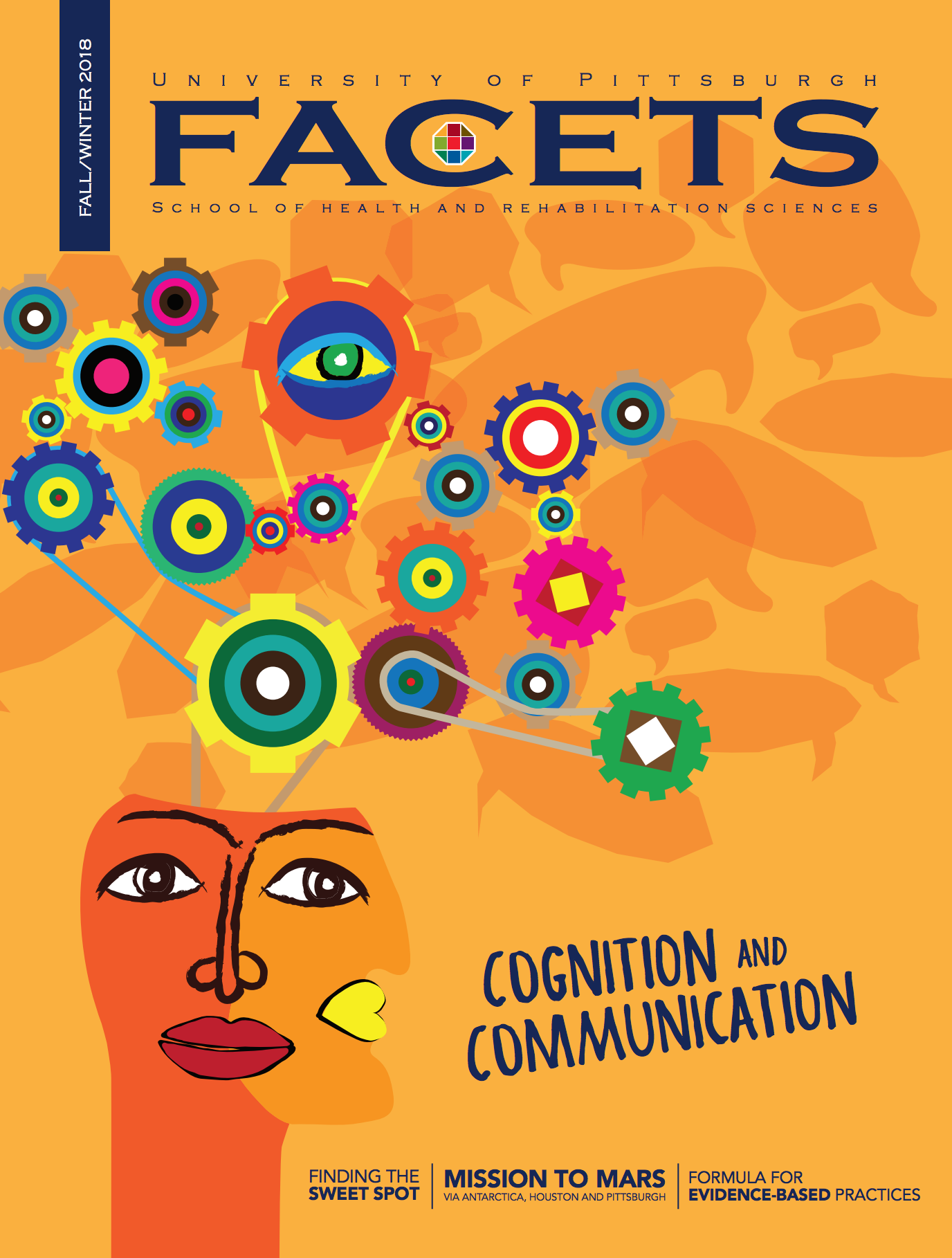
Subscribe to Pittwire Today
Get the most interesting and important stories from the University of Pittsburgh.Researcher Eyes Training, Intervention to Help Those With Mild Cognitive Impairment
This story originally appeared in the fall/winter 2018 issue of FACETS magazine.
It happens to everyone at some point. You forget where you put your keys. You walk into a room and wonder, “Why was I coming in here?”
According to Juleen Rodakowski, assistant professor, Department of Occupational Therapy, what some people call “senior moments” are actually quite normal.
“All adults experience temporary lapses in memory,” said Rodakowski. “As people age, there are declines in the processing speed of our brains. But with some people, there are more distinct changes that create barriers to performing activities of daily living.”
Mild cognitive impairment (MCI) is a diagnosis that bridges the gap between healthy cognitive aging and dementia. Although scientists predict that the number of people with cognitive impairments will triple by the year 2050, only a small percentage of them will progress to dementia. Rodakowski is committed to helping those in the early stages of decline, and examining how rehabilitation can maintain their quality of life.
Individuals with MCI have difficulty with challenging cognitive tasks, such as managing their finances or medications. They may also have trouble focusing on more than one task at a time. These impairments often lead to lack of participation in social activities they used to enjoy.
“For example, someone with MCI may start to prepare a meal but become so distracted by a phone call that she forgets that she has a boiling pot on the stove,” said Rodakowski. “Another may take the initiative to join a club, but forget who he met at a meeting and what he promised to contribute to the group, so he stops going.”
Through her research, Rodakowski is exploring ways to better identify older adults with MCI. She then develops strategies and interventions that will enable them to complete tasks and meet their personal goals. Rodakowski uses a home-based model that is patient-centered.
Through a standardized assessment tool, Rodakowski and other trained occupational therapists measure the number of prompts or cues a person needs to complete a cognitively challenging daily activity.
“With 80 percent accuracy, we can discriminate cognitive status between normal cognition and MCI by looking at these daily activities,” she said. “We can then employ rehabilitation techniques that will help them become better equipped to complete tasks that are important to them.”
One of the interventions Rodakowski examines is strategy training. During this four-step process, an occupational therapist helps the individual examine the challenges he or she faces in order to participate in certain activities. Together they develop alternative ways to engage in an activity. Eventually the individual completes the activity and then reviews it.
Individuals with MCI have difficulty with challenging cognitive tasks, such as managing their finances or medications. They may also have trouble focusing on more than one task at a time.
An example of a component in strategy training might be that a client decides to write specific information on a calendar or in a notebook so he or she has a visual reminder of appointments, names and other important information. When such pragmatic interventions become routine, they allow individuals to return to activities they enjoy.
Kate Golias (SHRS ’13G) worked with Rodakowski as a study coordinator and research therapist. She has seen individuals with MCI flourish when they are given the components of strategy training.
“Strategy training gives them back so much of what has started to slip away,” Golias said. “They are able to look at the activity that has become difficult and find alternative ways to participate in it. After strategy training, I’ve had participants begin to try new activities that support their healthy aging.”
Intervention therapist and graduate student researcher Chao-Yi Wu noticed similar changes during the training. “There were ‘Aha!’ moments when the participants realized they had given up many activities they used to do and enjoy. When they worked with the therapist to collaboratively identify strategies to make things work again, they were able to sustain and improve their cognitive functioning.”
According to Rodakowski, behavior only changes if the individual with MCI wants it to change. “The goal of the occupational therapist is to guide and support the client, and help him reach his personal goals.”
Rodakowski recently recruited participants for a new study that uses positron emission tomography (PET) scans to study the motivational networks in the brain. “We will establish a baseline for individuals and do a PET scan to see how the motivational networks are associated with response to strategy training.”
“We are not expecting to change the pathology in the brain,” she said, “but we believe we can change behavior and help older adults with MCI maintain engagement in daily living. And that leads to a better quality of life.”



